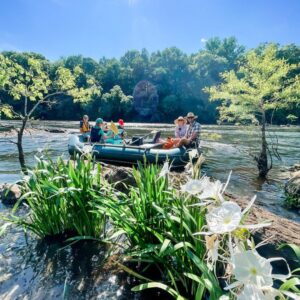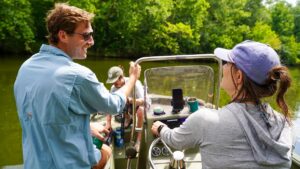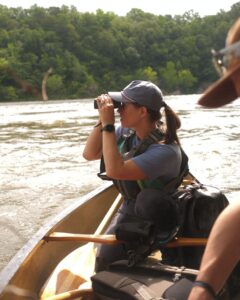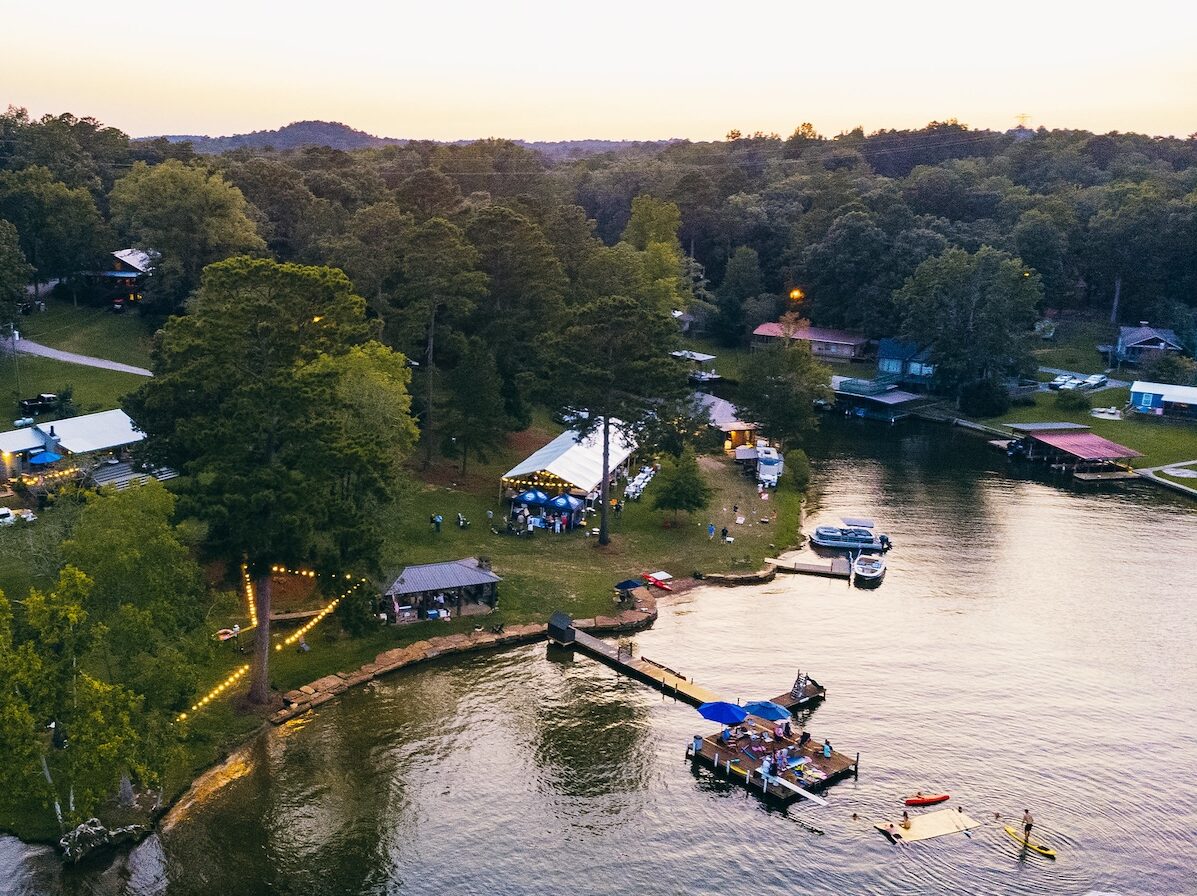“This is my home river, so my drinking water the majority of my life [has come] from this river,” shares Justinn Overton, Executive Director of Coosa Riverkeeper.
That lifelong connection is what has kept her dedicated to the health

(Coosa River Keeper/Facebook)
of the Coosa River for 13 of the organization’s 15 years. After being named one of the ten most endangered rivers in the nation, the Coosa Riverkeeper team set out to restore and protect one of Alabama’s most important waterways.
The Mission Behind Coosa Riverkeeper
“Although Alabama is abundant in waterways, there are still so many people that don’t really understand where their drinking water comes from, and don’t really understand how pollution ends up in our waterways,” shares Overton. “So, we are an organization that works to answer those questions, and we do that through data collection, water quality data collection, and community information.”
At its core, Coosa Riverkeeper’s mission revolves around three simple questions: Is it safe to swim here? Are the fish safe to eat? How does water quality affect my health or the health of my community?
Bringing Clarity to The Community
From collecting samples to fielding hundreds of pollution complaints each year, the organization’s work is both scientific and deeply community-centric. “We are members of Waterkeeper Alliance, which is an international alliance of organizations that are working to protect, promote, and restore waterways to make sure they’re swimmable, drinkable, and fishable,” she says.
And in many cases, restoration can mean rethinking commonly-held ideas. “It’s such an interesting thing that people confuse water clarity with water quality,” Overton explains. “A lot of people think that swimming in a pool, for instance, is better than swimming in a lake. But, oftentimes, pools have higher bacteria counts than some of the places that we sample on a weekly basis in the summer.”

(Coosa River Keeper/Facebook)
Overton reflects on her own past experiences that may have led her to similar conclusions and how her work helps to address these misconceptions. “I grew up with my toes muddy and not thinking much about water clarity.. That’s why our organization exists, is to be able to empower people with the information they need to make informed decisions about when they eat fish from the river where they swim.”
The Shoal Lily Restoration
One of the group’s most poetic present efforts is the Shoal Lily Restoration. The rare, white flowers—often referred to as Cahaba lilies—bloom for only a few weeks each spring. “ As part of their local restoration of the lilies, Overton and team float Hatchet Creek collecting seed pods, which they replant upstream.
We kind of have a joke with our sister organization Cahaba Riverkeeper because I’ve been emphatically calling them Rocky Shoals

(Coosa River Keeper/Facebook)
spider lilies for years,” she says, “partially to raise awareness that they are also on the Coosa River and on other rivers throughout the Southeast.”
“Despite sounding incredibly scientific, it’s a fairly simple process in terms of collecting seeds,” explains Overton. “Our plan is to collect the seeds and keep them in moving water overnight. So that’s the really interesting thing about these lilies is they require moving water. So that’s the reason they’re not found on the lakes.”
She dives in deeper for those interested in taking part in future efforts, “We take the seeds out and put them in a kind of bubbler—like what you would use for like live bait—and keep them in there so they’re staying aerated and so that the water has a good amount of dissolved oxygen. Then we will take them and plant them upstream from where we collected them. So every seed that we collect will stay in the watershed in which it was collected.”
“And, during all that time,” she assures, “documenting everything so that we can see what the progress would be, hopefully in the next two to three years.” Overton hopes that, through careful documentation, they will be able to see the tangible result of their intentional work and deep dedication.
Purpose-driven and future-focused, the Coosa Riverkeeper team seeks to continue identifying areas of opportunity along the Coosa to ensure one of Alabama’s most integral waterways remains wild.
Learn more about Coosa Riverkeeper and their ongoing restoration efforts here.



